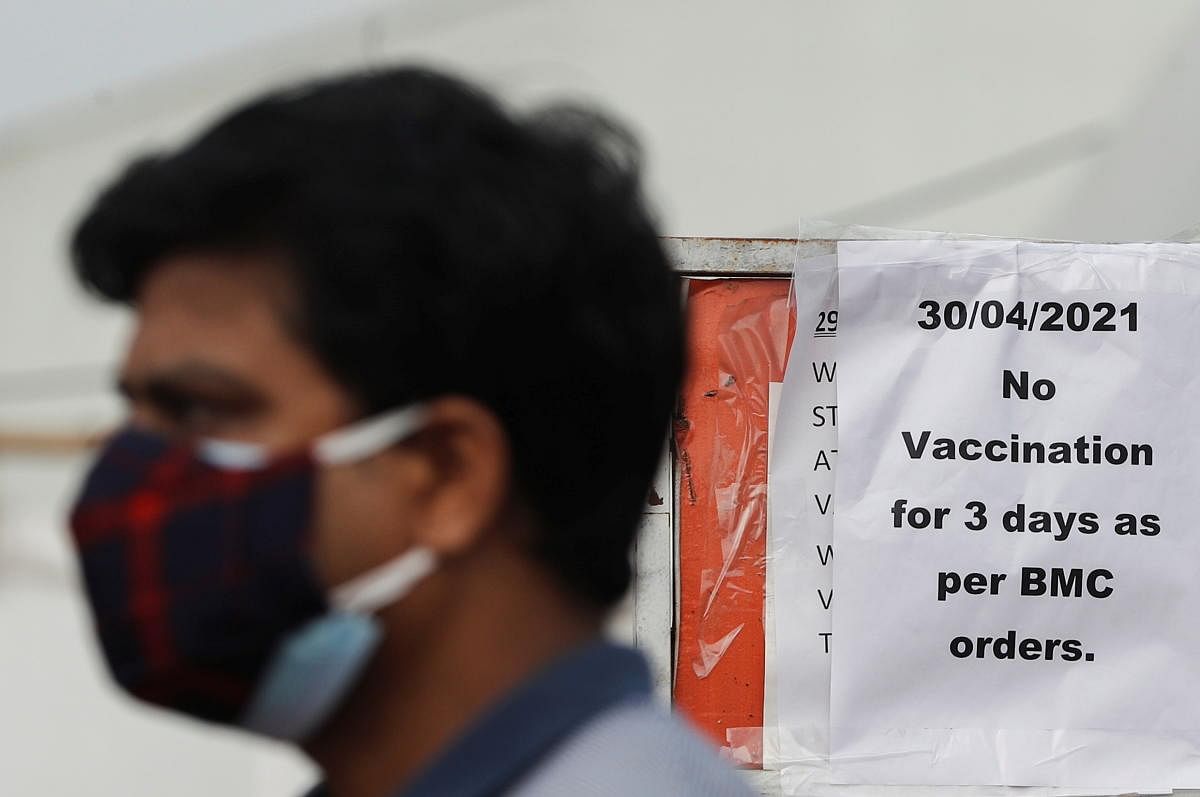
India was due Saturday to open up its jumbo vaccination drive to all adults, but many states don't have the stocks as hospitals reel from a vicious Covid surge.
Less than two months ago the health minister said India was in the "end game" of the pandemic as New Delhi sent millions of vaccines to dozens of countries.
Now the world's second-most populous nation is the epicentre of the global outbreak with almost 400,000 cases and more than 3,000 deaths every day.
Exports of the AstraZeneca vaccine by India's Serum Institute and of Bharat Biotech's homegrown Covaxin have now been frozen to prioritise India's needs.
Until now, only "frontline" workers like medical staff, people over 45 and those with existing illnesses have been given vaccines.
Read more: DH Covid-19 Helpbook: From FAQs to helplines, everything you need to know
But even this more modest programme has faltered, with some areas running out of shots and others throwing them away because of a lack of demand, in part because of the recent surge.
"The queues here are so colossal," said Jayanti Vasant as he waited for hours at a busy vaccination centre in Mumbai this week. "The people are just fighting amongst themselves."
So far around 150 million shots have been administered, equating to 11.5 per cent of the population of 1.3 billion people. Just 25 million have had two shots.
On Saturday the programme will be expanded to all Indians over 18, equating to around 600 million people.
Millions of younger people terrified by the current situation and desperate to get inoculated have registered on the government's digital platform.
But very few of them have been given appointments and many states including the capital New Delhi, Maharashtra and Punjab have said they don't have enough stocks.
The megacity of Mumbai, the capital of Maharashtra, on Thursday, halted all vaccinations for three days because it had run out.
Further confusion has been created by New Delhi's decision to ask states and private hospitals to order vaccine supplies on their own, creating a three-tier pricing system that requires them to pay more per dose than the central government.
This has led to squabbles between the central government, run by Prime Minister Narendra Modi's Bharatiya Janata Party, and states governed by opposition parties.
Anecdotal evidence suggests that some private clinics have been told they won't receive any vials for months.
"The whole thing looks like a confused elephant to me right now," said T Jacob John, a retired clinical virology professor at the Christian Medical College Vellore.
"Do you want to control the epidemic, save lives or both? If you want both you'll require a huge amount of vaccines. And we don't have it," John told AFP.
He and other experts say that given the shortages, and its colossal population, India should have a much more targeted policy, concentrating vaccinations in hotspots.
Gujarat is among the few states to have said they would do so, with chief minister Vijay Rupani saying Friday that vaccinations for over-18s would happen only in the 10 worst-hit districts.
The Serum is making 60-70 million AstraZeneca doses per month and is aiming for 100 million by July. Bharat is aiming to produce 10 million a month and targets 60-70 million.
Indian firms also have deals to produce other shots including Russia's Sputnik V -- some doses of which were due to arrive soon -- and Johnson & Johnson's single-dose vaccine, but it could be months until these are deployed.